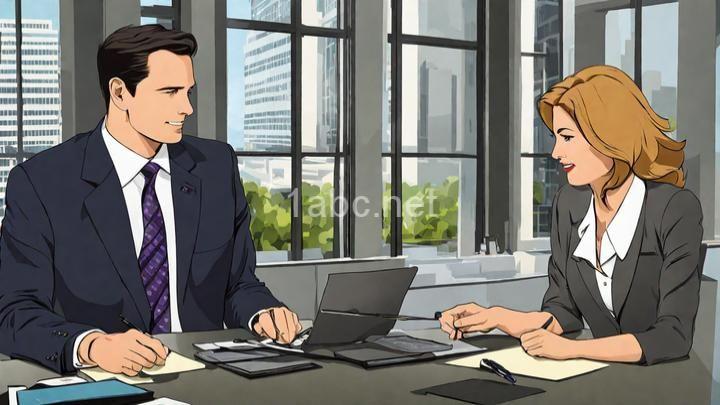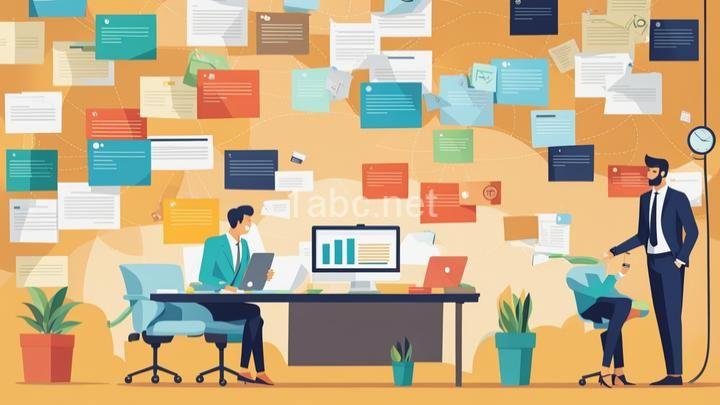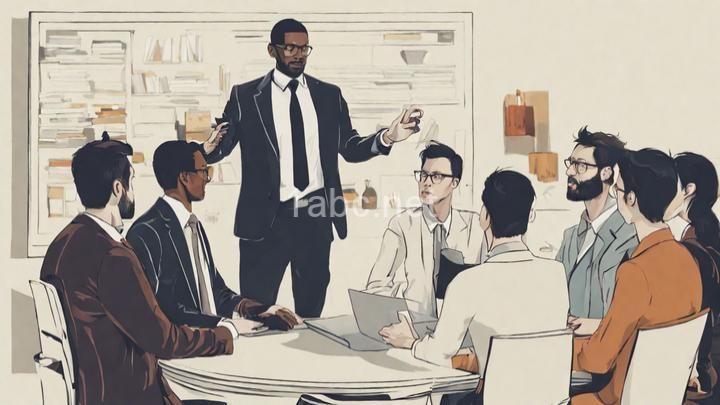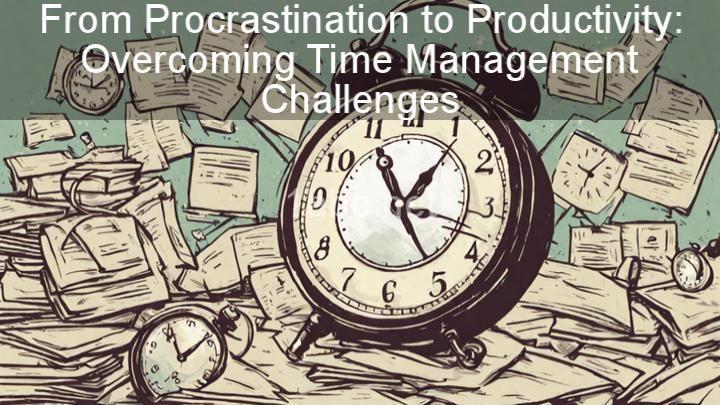Interview Etiquette: Impress Your Potential Employer with Polished Manners

Introduction:
Hello and welcome to the dorenelashay9177 blog! Today, we're diving into the world of interview etiquette and how you can leave a lasting impression on your potential employer. We all know that interviews can be nerve-wracking, but with the right manners and preparation, you can confidently navigate any interview situation. So, let's get started on polishing your interview etiquette!
I. Preparing for the Interview:
Before you even step foot into the interview room, it's essential to do your homework. Researching the company and role not only demonstrates your enthusiasm but also helps you tailor your answers to align with the company's values and goals. Look for information about the company's mission, recent projects, and any notable achievements. You can find relevant information online by exploring the company's website, blog, and social media platforms. Additionally, consider reaching out to contacts within your network who may have insights or connections to the company. Their perspective can provide valuable information and give you an edge during the interview.
When it comes to dressing appropriately, it's crucial to strike the right balance between professionalism and fitting in with the company culture. Different industries and companies have varying expectations, so it's essential to research and understand the dress code beforehand. If you're unsure, it's always better to err on the side of being slightly overdressed than underdressed. A well-fitted suit or a professional dress paired with polished shoes can make a strong first impression. Remember, your attire should reflect your respect for the interview process and your commitment to the role.
II. Punctuality and Time Management:
Arriving on time is a fundamental aspect of interview etiquette that should never be underestimated. Punctuality demonstrates your reliability and respect for the interviewer's time. Plan your journey in advance, taking into account traffic or public transportation delays. It's always better to arrive a few minutes early than to rush in at the last minute. If possible, do a trial run of the route a day or two before the interview to familiarize yourself with the location and minimize any potential stress on the day.
Effective time management is also crucial when it comes to preparing for an interview. Allocate time for research, practicing your responses to common interview questions, and gathering any necessary documents such as your resume or portfolio. Additionally, factor in travel time, potential waiting periods, and the time needed to calm your nerves before the interview. Utilize any waiting time wisely by reviewing your notes, taking deep breaths to relax, or even doing a quick power pose to boost your confidence.
III. Nonverbal Communication:
Nonverbal communication plays a significant role in making a positive impression during an interview. Your body language speaks volumes about your confidence and professionalism. Maintain good posture throughout the interview, sit up straight, and avoid slouching or crossing your arms. Make eye contact with the interviewer to show your attentiveness and engagement. A confident handshake can set the tone for a positive interaction, so practice a firm but not overpowering grip beforehand.
Active listening is another essential aspect of nonverbal communication. Show the interviewer that you are fully engaged in the conversation by nodding and using subtle affirmations. Paraphrasing what the interviewer has said and asking clarifying questions demonstrates your interest and understanding. Remember, effective communication is a two-way street, and active listening can help you build rapport with the interviewer.
IV. Verbal Communication:
When it's time to speak, clear and confident communication is key. Speak slowly and clearly, enunciating your words to ensure that your message comes across effectively. Avoid speaking too softly or too fast, as this can make it difficult for the interviewer to understand you. If you tend to rush through your words when you're nervous, practice speaking at a slower pace beforehand to build confidence in your delivery.
Answering questions effectively is crucial during an interview. One technique to structure your responses is using the STAR method: Situation, Task, Action, Result. Start by describing the situation or problem you encountered, then explain the specific tasks you undertook to address it. Next, highlight the actions you took and the specific skills you utilized. Finally, share the positive results that came from your efforts. This method allows you to showcase your skills and experiences without sounding like you're bragging.
V. Professionalism:
Professionalism should be at the core of your behavior throughout the interview process. This extends beyond your interactions with the interviewer to include everyone you encounter, from the receptionist to other staff members. Treat everyone with respect and courtesy, as you never know who may have a say in the hiring decision. Remember to be polite, make eye contact, and offer a friendly greeting to everyone you meet.
After the interview, following up with a thank-you note or email is a crucial step in interview etiquette. Express your gratitude for the opportunity to interview and restate your interest in the role. Craft a personalized message that references specific points from the interview to show your attentiveness. This follow-up not only demonstrates your professionalism but also keeps you fresh in the interviewer's mind.
Conclusion:
Congratulations, you've made it through our comprehensive guide on interview etiquette! By implementing these tips and techniques, you'll be well on your way to impressing your potential employer with your polished manners. Remember, preparation is key, and practicing these etiquette guidelines will help you navigate any interview situation with confidence and grace. Good luck on your job search, and thank you for joining us today!
Note: We hope you found this blog post helpful. If you have any questions or need further assistance, please don't hesitate to reach out. We're here to support you in your career journey.
FREQUENTLY ASKED QUESTIONS
Why is interview etiquette important?
Interview etiquette is important for several reasons. Firstly, it sets a positive impression of you as a candidate in the eyes of the interviewer. By displaying good etiquette, such as arriving on time, dressing appropriately, and maintaining professional behavior throughout the interview, you convey a sense of respect and seriousness about the opportunity.Secondly, interview etiquette helps create a conducive environment for effective communication. Following proper etiquette enables both parties to engage in a respectful and productive conversation. This includes actively listening, making eye contact, and using appropriate language and tone.
Furthermore, interview etiquette demonstrates your ability to conduct yourself professionally in a work setting. Employers often look for candidates who possess strong interpersonal skills, and showcasing good etiquette during an interview reflects your ability to navigate social dynamics and work well with others.
Additionally, interview etiquette shows your attention to detail and ability to follow instructions. By carefully adhering to guidelines provided by the interviewer, such as submitting required documents or answering questions thoughtfully, you demonstrate your capability to follow procedures and meet expectations.
Lastly, interview etiquette helps create a positive overall experience for both the interviewer and the interviewee. It contributes to a respectful and comfortable atmosphere, which can positively impact the overall outcome of the interview.
In summary, interview etiquette is important because it helps create a positive impression, facilitates effective communication, demonstrates professionalism, showcases attention to detail, and contributes to a positive experience for everyone involved.
How should I dress for an interview?
When it comes to dressing for an interview, it's important to make a good first impression. Your outfit should reflect professionalism and show that you take the opportunity seriously. Here are some tips to help you dress appropriately for an interview:
-
Dress formally: Opt for a business professional or business casual attire, depending on the company culture. For a business professional look, wear a suit or a skirt/dress with a blazer. For a business casual look, pair dress pants or a skirt with a button-down shirt or blouse.
-
Choose neutral colors: Stick to neutral colors like black, gray, navy blue, or brown for your clothing. These colors are safe and convey professionalism. Avoid bright or flashy colors that may distract the interviewer.
-
Pay attention to fit: Ensure that your clothes are well-fitted and not too tight or too loose. Avoid clothing that is wrinkled or has stains. It's important to look polished and put together.
-
Mind the details: Pay attention to the small details like your shoes, accessories, and grooming. Wear closed-toe shoes that are clean and polished. Keep accessories minimal and tasteful. Make sure your hair is neatly styled and your nails are clean.
-
Research the company culture: Take into consideration the company culture when choosing your outfit. Some companies have a more relaxed dress code, while others may expect a more formal attire. It's always better to be slightly overdressed than underdressed.
Remember, dressing appropriately for an interview shows respect for the company and the opportunity. It demonstrates that you are serious about the position and have put thought into your appearance. Good luck with your interview!
Should I arrive early or on time for an interview?
When it comes to interviews, it's always better to err on the side of caution and arrive early rather than just on time. Arriving early not only shows that you are punctual and responsible, but it also gives you a chance to calm your nerves and mentally prepare yourself before the interview begins. Additionally, arriving early allows you to familiarize yourself with the surroundings, find the interview location, and gather any necessary documents or materials you may need. However, make sure not to arrive too early as it may inconvenience the interviewer. Aim to arrive about 10-15 minutes before the scheduled interview time. This way, you'll have enough time to settle in and make a good impression without causing any inconvenience. So, while it's important to be punctual, being early can give you a competitive edge in the interview process.
How should I greet the interviewer?
When greeting the interviewer, it is important to maintain a professional and polite demeanor. Here are a few tips on how to greet the interviewer:
-
Smile and make eye contact: Start off on a positive note by smiling and making eye contact with the interviewer. This shows that you are enthusiastic and engaged.
-
Shake hands: Extend your hand for a firm handshake when introduced or when you first meet the interviewer. A firm handshake conveys confidence and professionalism.
-
Use a polite greeting: Start the conversation with a polite greeting such as "Good morning/afternoon" or "Nice to meet you." This sets a friendly tone for the interview.
-
Use their name: If the interviewer introduces themselves, make an effort to remember their name and use it throughout the conversation. This shows attentiveness and respect.
-
Follow their lead: Pay attention to the interviewer's body language and cues. If they initiate a more formal greeting, follow suit. If they seem more relaxed and informal, adjust your greeting accordingly.
Remember, the goal is to make a positive first impression and establish rapport with the interviewer. By being polite, confident, and attentive, you can start the interview on the right foot. Good luck!


